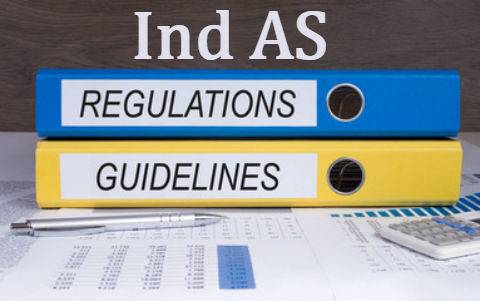Table of Contents
Introduction to Accounting Standards
To ensure legitimate finance practices in a company, following accounting standards, which are a compilation of policies, regulations, and guidelines is necessary. In short, accounting standards refer to certain strict practices a company or a business entity must follow to generate accurate financial reports. The accounting guidelines encompass all the financial aspects including assets, liabilities, and shareholder’s equity along with a perfect financial picture of a company. In order to get a reliable and transparent financial picture, investors, banks, and other regulatory agencies rely on accounting standards.
Most countries have certain accounting standards to ensure best finance practices. For instance, While several other foreign countries rely on International Financial Reporting Standards( IFRS) to report their financial statements, America depends on Generally Accepted Financial Principles ( GAAP).
Each day, every business carries out several financial transactions to efficiently run the company. Therefore, one of the primary responsibilities of any company is to prepare statements legitimately to show them to banks and other investors in order to get loans or funds. Balance sheets and profit and loss statements are among the most important statements that tell about the financial health of a company. Hence, all companies must stick to accounting guidelines set by recognized accounting bodies. In short, accounting standards aim to standardize various accounting policies and principles.
Significance of Accounting Standards
Primarily, the main objective of setting such standards is to ensure investors are given appropriate and accurate financial information regarding a company. Accounting standards encompass certain rules and regulations that ensure uniformity in accounting. In short, they have a standard format for financial statements that makes sure of uniformity. Secondly, a stakeholder who invests their money in a company relies on financial statements for analyzing the financial picture of that company. Therefore, by following accounting standards a company can produce reliable financial statements. Thirdly, the principles and policies set in accounting standards must be abided by all the entities; as a result, the chances of fraud and manipulations are minimized.
Most of all, following accounting standards by a company is a great help for auditors. When the auditor checks and confirms if all the accounting standard policies have been followed correctly, he assures the accuracy of financial statements. Also, following proper accounting standards measures the managerial performance of an entity. This helps in increasing the profits of a company.
Origin of Indian Accounting Standards
Indian Accounting Standards (Ind AS) are issued by the Accounting Standard Board to converge Indian GAAP with International Financial Accounting Standards (IFRS). Their objective is to remove variations in the treatment of several accounting aspects and to bring about standardization in the presentation.
On 2 January 2015, the Press Information Bureau, Government of India, Ministry of Corporate Affairs (MCA) issued a note outlining the various phases in which Indian Accounting Standards converged with IFRS (Ind AS) is proposed to be implemented in India, for Companies other than Banking Companies, Insurance Companies, and NBFCs. Consequently, the companies will need to convert their accounts from Indian GAAP to IFRS.
 Roadmap to Implementation:
Roadmap to Implementation:| Financial year | Applicable to |
| 2016-2017 | Companies (listed and unlisted) whose net worth is equal to or greater than 500 crore INR |
| 2017-2018 | Unlisted companies whose net worth is equal to or greater than 250 crore INR and all listed companies |
| 2018-2019 and onwards | When a company’s net worth becomes greater than 250 crore INR |
| 2015-2016 and later | Entities, not under the mandatory roadmap, may later voluntarily adopt Ind AS |
Whenever a company gets covered under the roadmap, Ind AS becomes mandatory, its holding, subsidiary, associate and joint venture companies will also have to adopt Ind AS (irrespective of their net worth). Moreover, Ind AS will apply to both consolidated as well as standalone financial statements of a company. While overseas subsidiary, associate or joint venture companies are not required to prepare standalone financial statements under Ind AS, they will need to prepare Ind AS adjusted financial information to enable consolidation by the Indian parent.
Why is it essential to implement Indian accounting standards?
Accounting, which is known as business language helps in communicating to others about the financial status of a company. In order to establish accurate and clear communication, accounting relies on Indian Accounting Standards that encompass certain rules and policies for the accurate generation of financial statements. Primarily, improving the financial statements is the main objective of Indian Accounting Standards. Secondly, following Indian Accounting Standards allows intra and interfirm comparisons so that we can check the company’s progress and position in the market. Additionally, it aims to provide one set of accounting policies that cover both disclosure requirements and valuation methods of all financial transactions.
Application of Indian Accounting Standards:
The Indian Accounting Standards set in India vary between companies according to their nature and size.
- All companies, especially the ones established in 2013 must stick to Indian Accounting Standards. In fact, they strictly follow the guidelines, irrespective of whether they are private or public companies.
- Besides private and public sector banks, Non-banking financial companies along with other banking and financial institutions must follow accounting guidelines.
- Also, insurance companies, irrespective of whether they are life or non-life in nature must follow Indian Accounting Standards.
- Furthermore, companies enlisted in the Indian Stock Exchange must abide by Indian Accounting Standards.
- Sticking to Indian Accounting Standards promotes transparency, and builds trust in investors.
Principles of Indian Accounting Standards

A complete set of financial statements under Ind AS includes the following:
- The balance sheet at the end of the period
- Statement of profit and loss for the period
- Statement of changes in equity for the period
- Statement of cash flows for the period; notes, comprising a summary of significant accounting policies and other explanatory information
- Comparative financial information in respect of the preceding period as specified
- A balance sheet as at the beginning of the preceding period
When an entity applies an accounting policy retrospectively or makes a retrospective restatement of items in its financial statements, or when it reclassifies items in its financial statements having an impact on the balance sheet as at the beginning of the preceding period.
Also Check Media Link – The Tribune
Other Henry Harvin Courses:
- Business Accounting and Taxation course
- Business Analytics Course
- SAP FICO Course
- GST course
- Data Science course
Implementing Indian Accounting Standards in 2024
India has been progressively aligning its accounting standards with international norms to enhance transparency and comparability. In 2024 , there are several industrial sectors or applications aimed at facilitating the implementation of Indian Accounting Standard. Here are some potential applications:
- Accounting Software Solutions: Various software solutions tailored as per Indian accounting standards evolves to assist businesses in complying with regulations. It includes popular platforms like Tally, QuickBooks, or customized solutions specific to Indian standards.
- Training and Certification Programs: With the changing accounting standards, there might be a surge in demand for training programs and certifications focused on Indian Accounting standards. Online platforms offering courses, workshops, and certification programs are popular among finance professionals and students.
- Consultancy Services: Several Organizations in accounting and auditing services may offer consultancy services to help businesses transition smoothly as per new standards.
- Regulatory Compliance Tools: These tools might offer features such as automated reporting, compliance checklists, and real-time updates on regulatory changes specific to Indian accounting standards.
- Educational Resources: Online platforms, blogs, and forums could provide educational resources such as articles, videos, and interactive tutorials to help individuals and businesses understand and implement Indian accounting standards effectively.
- Industry-Specific Solutions: Applications catering to specific sectors, such as healthcare, manufacturing, or hospitality, could offer specialized features to address industry-specific accounting challenges while ensuring compliance with Indian standards.
- Mobile Apps for Financial Management: Mobile applications designed for financial management and reporting could be developed with features aligned with Indian accounting standards.
- Government Initiatives and Portals: Government initiatives or portals dedicated to accounting standards could provide comprehensive resources, guidelines, and tools to assist businesses in understanding and implementing the standards effectively.
Difference between IFRS and Indian AS
India has chosen a path of International Financial Reporting Standards (IFRS) convergence rather than adoption. Hence, Ind AS is primarily based on the IFRS issued by the International Accounting Standards Board (IASB). However, there are certain carve-outs from the IFRS. There are also certain general differences between Ind AS and IFRS:
- The transitional provisions given in each of the standards under IFRS have not been given in Ind AS, since all transitional provisions related to Ind AS, wherever considered appropriate, have been included in Ind AS 101, First-Time Adoption of Indian Accounting Standards, corresponding to IFRS 1, First-Time Adoption of International Financial Reporting Standards.
- Different terminology is used in Ind AS when compared to IFRS, e.g. the term ‘balance sheet’ is used instead of ‘statement of financial position’ and ‘statement of profit and loss’ is used instead of ‘statement of comprehensive income’.
The Indian Accounting Standard and making a first-time financial report using the same requires high-quality data that can be processed into valuable information. The Interim Financial Reports for the same must also have the same features that are present in the overall report. The following features are warranted:
- The overall periods of the report must be easy to read. It should also be comparable to other statements that provide more or less the same information.
- The reports must have enough provisions for a strong starting point for accounting in compliance with the pointers and directions set by the Indian Accounting Standards.
- The system can be produced in such a way so that its costs do not go above the benefits.
There are several kinds of accounting standards set by the Indian Accounting Standards, and a brief overview of some of them can lead us to a conclusive and comprehensive idea of Indian Accounting Standards:
Business Standards:
This Indian Accounting Standard improves the readability and reliability of accounting standards across users. To accomplish that, Indian Accounting Standards try to recognize the identifiable assets and liabilities. This Standard also includes non-controlling interest for the one who acquires the liabilities.
Exploration of Mineral Resources:
This Indian Accounting Standard needs the following criterion to be met:
- The standard calls for improvement in the existing systems so that the practice of accounting for evaluating expenditures in the mineral resources industry can be valid.
- This system requires the agents to recognize the evaluation of mineral assets following Ind AS 36, Impairment of Assets. It ensures that the impairment occurs following the standards set by the generally accepted body. It removes discrepancies across several users.
- Financial Instruments and their Disclosures:
The Indian Accounting Standards have provided measures for the same.
The Standard sets some rules and regulations based on which the establishment for the presentation of financial tools as liabilities or loans can take place. The uncertainty of cash flows from a particular asset can be assessed using these rules and principles. It also helps in providing a foolproof idea of the amounts and timings of expected cash flows.
These are some of the methods in which the Indian Accounting Standard tries to improve reliability and connectivity across users. The ultimate objective of the Indian Accounting Standards is to provide constant treatment, disclosure, and reformation of the existing standards so that the process of accounting for such large scale activities becomes straightforward and lucid.
Check for- Accounting and Taxation Certification Course

Following is the list of Ind AS issued by Accounting Standard Board
1. Ind AS 101- Deals with First-time Adoption of Indian Accounting Standards
2. Ind AS 102- Deals with Share-based Payment
3. Ind AS 103- Deals with Business Combinations
4. Ind AS 104- Deals with Insurance Contracts
5. Ind AS 105- Deals with Non-current Assets Held for Sale and Discontinued Operations
6. Ind AS 106- Deals with Exploration for and Evaluation of Mineral Resources
7. Ind AS 107- Deals with Financial Instruments: Disclosures
8. Ind AS 108- Deals with Operating Segments
9. Ind AS 1- Deals with Presentation of Financial Statements
10. Ind AS 2- Deals with Inventories
11. Ind AS 7- Deals with Statement of Cash Flows
12. Ind AS 8- Deals with Accounting Policies, Changes in Accounting Estimates and Errors
13. Ind AS 10- Deals with Events after the Reporting Period
14. Ind AS 11- Deals with Construction Contracts
15. Ind AS 12- Deals with Income Taxes
16. Ind AS 16- Deals with Property, Plant, and Equipment
17. Ind AS 17- Deals with Leases
18. Ind AS 18- Deals with Revenue
19. Ind AS 19- Deals with Employee Benefits
20. Ind AS 20- Deals with Accounting for Government Grants and Disclosure of Government Assistance
21. Ind AS 21- Deals with The Effects of Changes in Foreign Exchange Rates
22. Ind AS 23- Deals with Borrowing Costs
23. Ind AS 24- Deals with Related Party Disclosures
24. Ind AS 27- Deals with Consolidated and Separate Financial Statements
25. Ind AS 28- Deals with Investments in Associates
26. Ind AS 29- Deals with Financial Reporting in Hyperinflationary Economies
27. Ind AS 31- Deals with Interests in Joint Ventures
28. Ind AS 32- Deals with Financial Instruments: Presentation
29. Ind AS 33- Deals with Earnings per Share
30. Ind AS 34- Deals with Interim Financial Reporting
31. Ind AS 36- Deals with Impairment of Assets
32. Ind AS 37- Deals with Provisions, Contingent Liabilities, and Contingent Assets
33. Ind AS 38- Deals with Intangible Assets
34. Ind AS 39- Deals with Financial Instruments: Recognition and Measurement
35. Ind AS 40- Deals with Investment Property
Want to get more information about IFRS training and certification?
Connect with one of our consultants for more information!
Email us now at [email protected] or call us at our centralized number: 9015266266.
Also check-
FAQ’s
Q1. Who sets the Accounting Standards in India?
Ans. The ASB or the Accounting Standard Board, the committee of ICAI, the highest authoritative accounting body of India sets the policies and regulations of Indian Accounting Standards.
Q2. What is the reason for developing a separate accounting standard for India ( Ind AS)?
Ans. Predominantly, the Indian Accounting Standard or Ind AS was developed to systematize accounting and reporting standards about International accounting.
Q3. Should companies follow Indian Accounting Standards?
Ans. Yes, companies must adhere to Indian Accounting Standards while generating a financial report’ this helps investors understand the actual financial picture of a company.
Q4. What Indian Accounting Standards are used in India?
Ans. Ind AS or the Indian Accounting standard, took birth under the supervision by the Indian Accounting Standards Board
Q5. What must companies follow Indian Accounting Standards?
Ans. Ensures transparency, reliability, and consistency in financial statements it is mandatory to stick to Indian Accounting Standards.



![Top 10 Design Thinking Courses In Mysore in 2024 [Updated]](https://hh-certificates.sgp1.digitaloceanspaces.com/blog/wp-content/uploads/2023/01/12102001/pasted-image-0-2023-01-12T154946.835-270x180.jpg)
![Generally Accepted Accounting Principles in 2024 [Updated]](https://hh-certificates.sgp1.digitaloceanspaces.com/blog/wp-content/uploads/2023/01/17105830/blog318-270x180.jpg)
![Guide To The Objectives of IFRS in 2024 [Updated]](https://hh-certificates.sgp1.digitaloceanspaces.com/blog/wp-content/uploads/2022/12/25103623/pasted-image-0-2023-01-25T160606.654-270x180.jpg)
![Top 10 IFRS Certification Course in Thiruvananthapuram: 2024 [Updated]](https://hh-certificates.sgp1.digitaloceanspaces.com/blog/wp-content/uploads/2022/11/01092239/blog47-1-270x180.jpg)
![Top 10 IFRS certification courses in Lucknow with Salary: 2024 [Updated]](https://hh-certificates.sgp1.digitaloceanspaces.com/blog/wp-content/uploads/2022/12/24104743/pasted-image-0-2023-01-24T161731.160-270x180.jpg)
![TOP 10 IFRS CERTIFICATION COURSES IN KOCHI: 2024 [Updated]](https://hh-certificates.sgp1.digitaloceanspaces.com/blog/wp-content/uploads/2022/12/21100504/pasted-image-0-2023-01-21T153449.722-270x180.jpg)
.webp)
